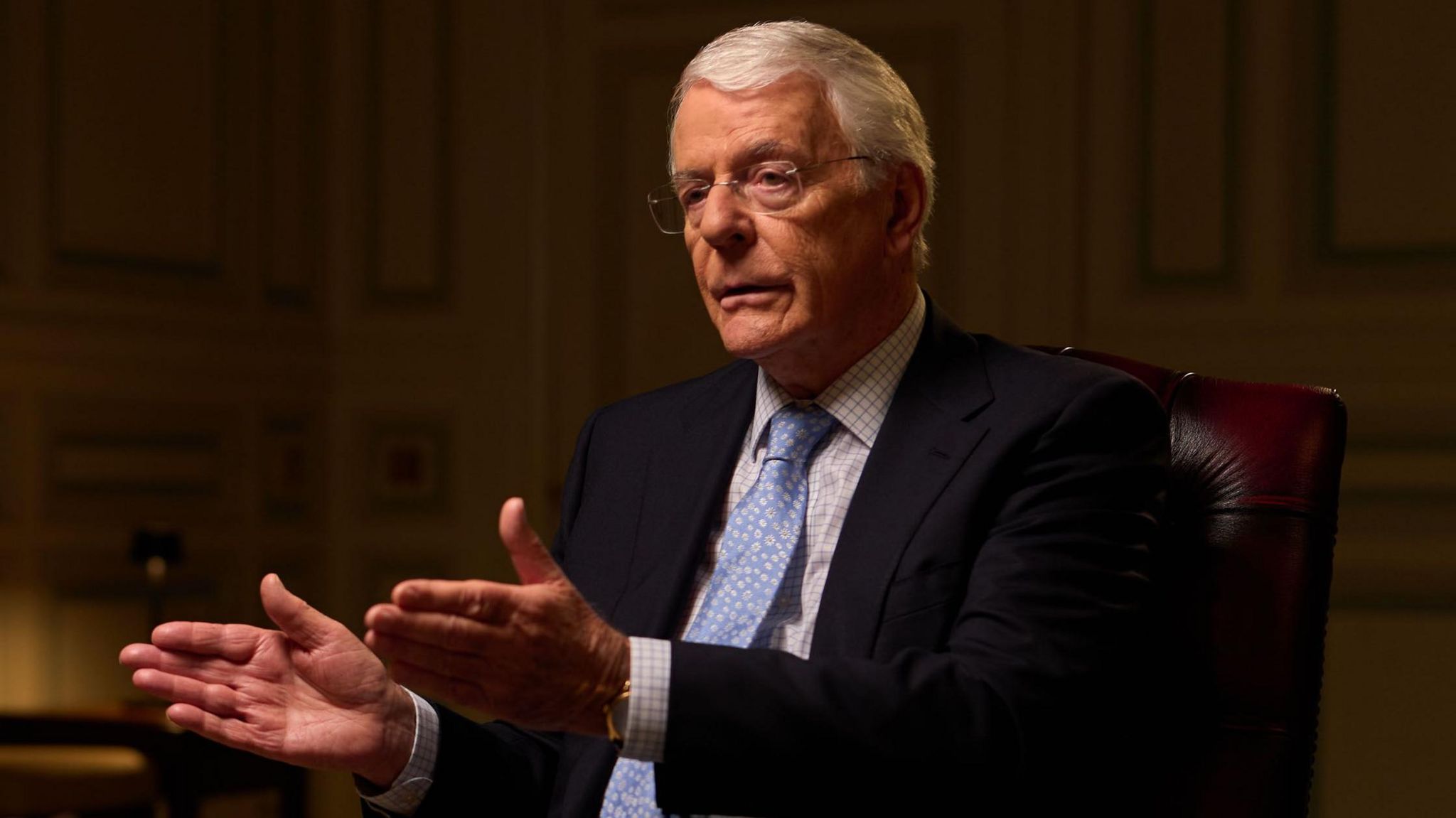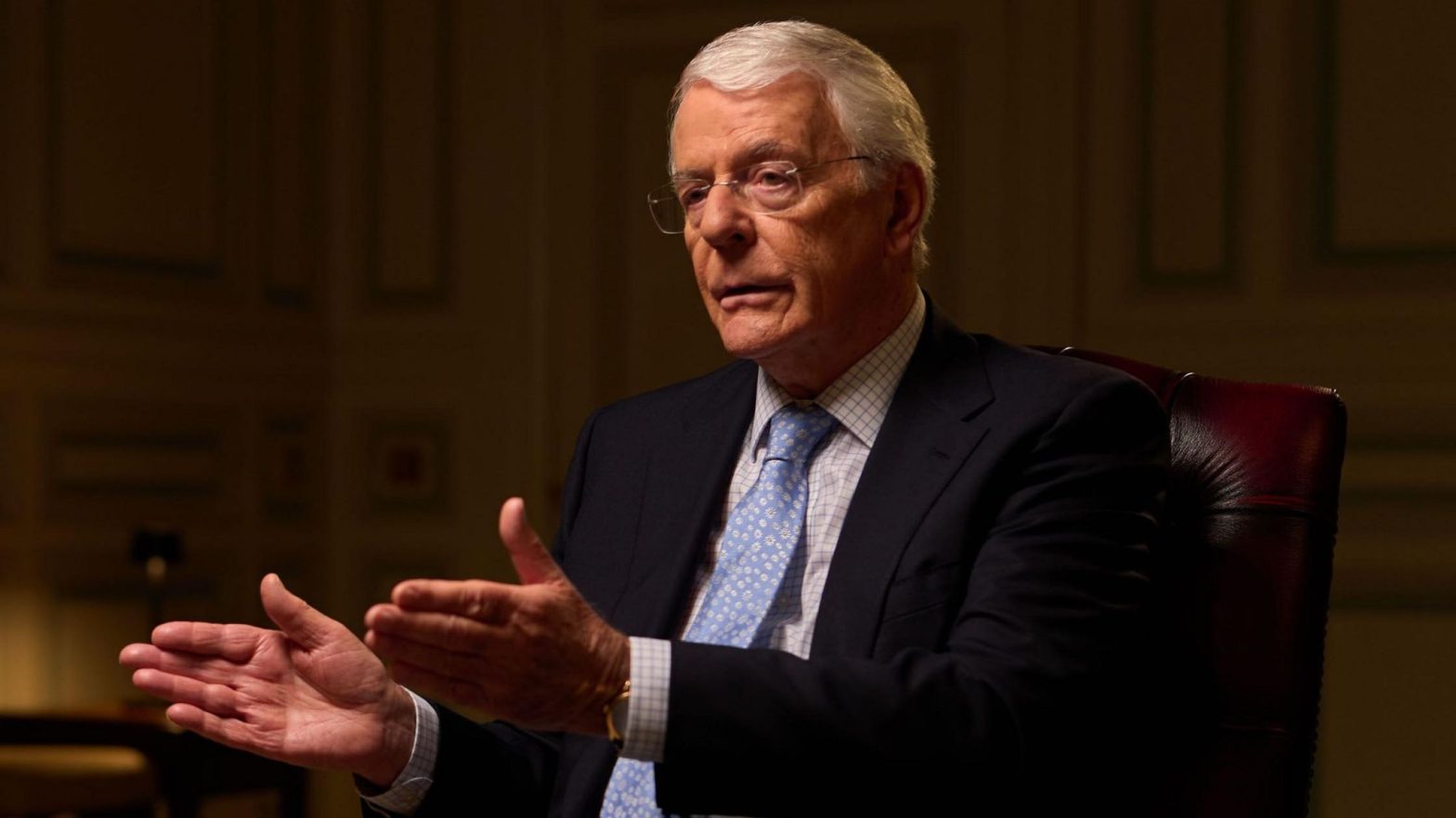Rwanda plan was un-British, says ex-PM John Major

Former Prime Minister Sir John Major has criticised the previous government’s Rwanda asylum plan, branding it “un-Conservative and un-British”.
The scheme aimed to deter people crossing the Channel in small boats by sending some migrants who arrived in the UK illegally to the east African country.
However, the plan was stalled by legal challenges and scrapped by the new Labour government, with no migrants sent to Rwanda under the scheme.
In an interview with the BBC’s Amol Rajan, Sir John, who was Tory PM from 1990 to 1997, said he thought the plan was “odious”.
“I thought it was un-Conservative, un-British, if one dare say in a secular society, un-Christian, and unconscionable and I thought that this is really not the way to treat people,” he said.
Challenged over whether the scheme was a necessary deterrent to stop small boat crossings, Sir John said: “Are they seriously saying to me that somewhere in the backwoods of some North Africa country, they actually know what the British Parliament has legislated for? I think not.”
He added: “If it actually happened it might have been [a deterrent] – but it would still have been odious in my view.”
-
Starmer confirms Rwanda deportation plan ‘dead’
-
6 July
-
-
James Cleverly vows to resurrect Rwanda scheme
-
2 September
-
-
UK hopes to recoup cash from scrapped Rwanda scheme
-
8 July
-
In the wide-ranging interview, Sir John was also asked about his views on the future of the Conservative Party.
The former PM said he had not done many TV interviews recently because “there’s not been a great deal I could say, I would wish to say, in favour of what the previous government were doing”.
He added: “I thought it better just to stay off the air. Now, of course, the election’s behind us, the party’s looking again to the future, and I can return to speaking out, hopefully in favour.”
Asked if his party deserved to lose July’s general election, when the Conservatives suffered their worst defeat in the party’s parliamentary history, Sir John said “there’s a time of when democracy needs a change in government”.
Sir John’s government was also unseated by a Labour landslide in 1997, when Tony Blair won power.
“I could see that in 1997, we had been in government for 18 years and it was perfectly true to say, that we were tired and that we were running out of fresh people to make ministers and reinject the government with vigour,” he said.
“And of course the same thing applies [with the recent election results], although it was only 14 years.”
Sir John urged his party to appeal to the centre-right, “where our natural support really lies”, arguing the Tories lost far more seats to Labour and the Liberal Democrats than the right-wing Reform UK party.
“We lost five [seats] to Reform UK and people are jumping up and down, and some, rather reckless people are saying, well we must merge with them.
“Well, that will be fatal.”
However, Sir John said he was “optimistic” about the party’s future, adding: “We have had such a bad defeat, we have got a base upon which we can build, in a wholly new and, I think, potentially effective way.”
Sir John said he had not decided who he was backing to be the next Tory leader, who will be announced on 2 November.
But he added: “I would like to support someone who’s going to look at the long-term problems and make a suggestion as to which direction we should go and bring people back into the party who are genuinely centre-right.”
The full interview, Amol Rajan Interviews: John Major, is on BBC Two at 19:00 BST and will be available on BBC iPlayer and BBC Sounds from 06:00.
Related topics
- Conservative Party
- UK immigration
- Refugees and asylum seekers
- John Major
Published at Wed, 18 Sep 2024 00:39:42 +0000
